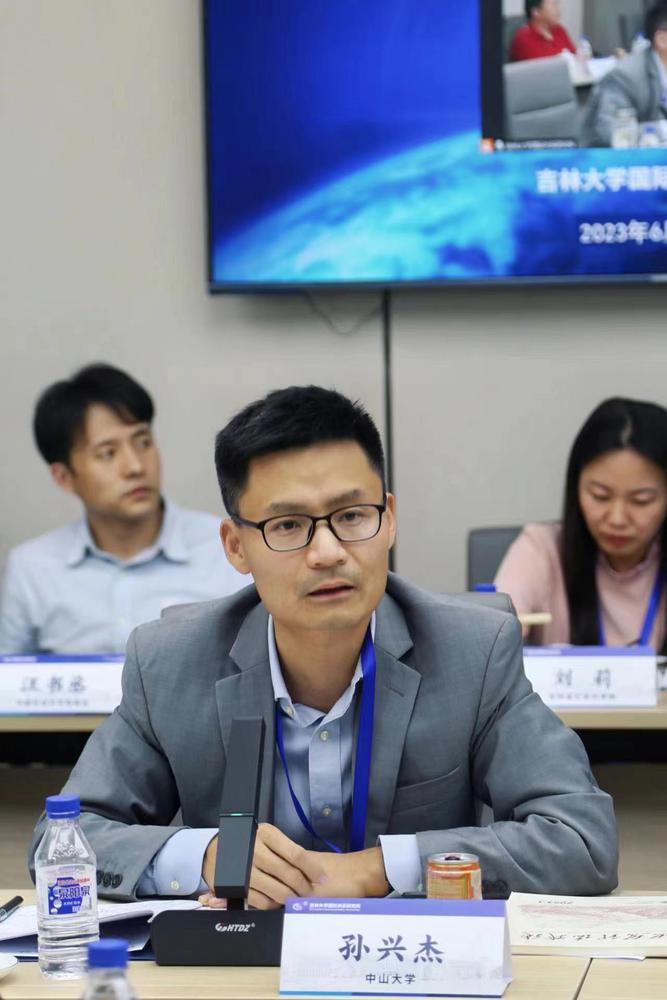
On April 30th, Chinese Foreign Ministry Spokesperson Lin Jian said that the two major Palestinian political factions, Fatah and Hamas, had engaged in in-depth and candid talks in Beijing to promote intra-Palestinian reconciliation. China has once again provided a platform for consultations on Middle East affairs following its successful mediation last year in restoring diplomatic relations between Saudi Arabia and Iran, which has drawn significant attention from the international community.
On May 1st, reporters from Yangcheng Evening News interviewed Sun Xingjie, Professor and Vice Dean from the School of International Relations at Sun Yat-sen University,on this matter.

Question 1: Fatah and Hamas are two influential political factions within Palestine. What are the main differences between them?
Fatah is a major political entity within Palestine recognized by the international community, primarily operating in the west bank region of the Jordan River. Hamas, on the other hand, is a representative political faction in the Gaza Strip. Each of them has its own political space. Regarding Israel, Fatah recognizes Israel's legitimacy and seeks to establish a Palestinian state through coexistence with Israel. Hamas, however, adopts a more radical approach in resisting Israel. Over the past decade, the Israeli-Palestinian Conflict mainly centered around tensions between Israel and Hamas.
Question 2: Why did Fatah and Hamas choose Beijing for their talks?
Firstly, as a permanent member of the United Nations Security Council,China holds a significant position in the international community. Secondly, China maintains a relatively neutral position in Middle East affairs compared to other four permanent members of the Security Council. As an external country, China has never deeply involved in complex conflicts related to ethnicity, religion, or geopolitics in the Middle East. Lastly, China has been consistently advocating for the implementation of the "two-state solution" to address long-term injustices faced by Palestine. Previously, when Palestine applied to become a full member state of the United Nations, China voted in support.
Question 3: What achievements have been made in their talks?
Given the wide divergence between these two political factions, there is currently no unified political entity that can represent Palestine. As a result, the implementation of the "two-state solution" and the establishment of an independent and unified Palestinian state face substantial hurdles. As long as the unity within Palestine is not achieved, and the question of who will represent Palestine remainsunsolved, the establishment of the Palestinian state would be impossible.From this perspective, a significant result of their talks in Beijing would be the consensus they have reached on the construction of a unified or national Palestinian political organization.
Question 4: Going forward, what role will China play in Middle East affairs, especially regarding the Israeli-Palestinian issue?
China will continue to promote peace and stability in the Middle East and encourage economic and trade cooperation with countries in the region. Against the backdrop of energy transition, China has established stable cooperation in energy with Middle Eastern countries. Currently, the conflict in the Gaza Strip has displaced millions of people, resulting in a tremendous humanitarian crisis. Recently, protests in support of Palestine have erupted in several American universities. Since the outbreak of the recent conflict, China has maintained its consistent position, calling for an immediate ceasefire while providing humanitarian assistance. Its impartial and objective stance has withstood tests of history and reality. This international credibility will serve as a political resource to promote future consultations.
Source:Yangcheng Evening News
中山大学国际关系学院教授、副院长孙兴杰:法塔赫和哈马斯在北京进行磋商反映中国在中东事务中获各方信任
4月30日,中国外交部发言人林剑证实,巴勒斯坦两大政治派别巴勒斯坦民族解放运动(法塔赫)和伊斯兰抵抗组织(哈马斯)在北京磋商,双方就推进巴内部和解深入坦诚对话。这是中国继去年成功斡旋沙特阿拉伯和伊朗两国恢复外交关系以来,又一次为中东事务提供磋商平台,国际社会对此高度关注。
5月1日,羊城晚报记者就相关问题专访了中山大学国际关系学院教授、副院长孙兴杰。
一问:法塔赫和哈马斯在巴勒斯坦内部是两个非常具有影响力的政治派别,两个派别之间主要分歧是什么?
法塔赫是巴勒斯坦内部受到国际社会公认的政治主体,主要在约旦河西岸地区;哈马斯是加沙地带的代表性政治派别。两大派别各有自己的政治空间。在对待以色列的态度上,法塔赫承认以色列的合法性,并寻求在与以色列共存的情况下建立巴勒斯坦国;而哈马斯则以较为激进的方式反抗以色列,过去十几年,巴以冲突也主要集中在以色列与哈马斯之间。
二问:法塔赫和哈马斯为什么选择在北京进行磋商?
首先,中国是联合国安理会常任理事国,在国际上的地位举足轻重。其次,中国在中东事务中处于一个较为“超脱”的地位,不同于其他四个安理会常任理事国,中国作为域外国家,没有过深卷入中东复杂的民族、宗教、地缘政治等利益冲突。第三,中国一直呼吁落实“两国方案”,通过建立巴勒斯坦国来解决巴勒斯坦长期遭受的历史不公。此前,巴勒斯坦申请成为联合国的正式会员国,中国也投了赞成票。
三问:这次会谈双方达成了什么成果?
由于巴内部两个政治派别分歧巨大,目前尚无一个能代表巴勒斯坦的政治实体,因此落实“两国方案”、建立独立统一的巴勒斯坦国也是无从谈起。巴勒斯坦内部如果无法实现团结,谁来代表巴勒斯坦的问题得不到解决,那巴勒斯坦国的建立就遥遥无期。从这个角度讲,法塔赫与哈马斯在北京谈判,就是达成了构建一个统一的——或者说全国性的巴勒斯坦政治组织的共识,这是一个非常重要的进展。
四问:接下来,中国还将在中东事务特别是巴以问题上发挥什么作用?
中国还是要继续推动中东地区的和平稳定,推动与中东地区的经贸、投资合作。在能源转型的大背景下,中国与中东国家有非常稳固的能源合作纽带。目前,加沙地带上百万人因冲突流离失所,已经造成了巨大的人道主义灾难。最近,有美国高校爆发了声援巴勒斯坦的抗议活动。本轮冲突爆发以来,中国保持了一贯的立场,呼吁实现立即停火,提供人道主义援助。中国这种公正客观的立场经受住了历史和现实的考验,这种国际信誉本身就会成为中国推动下一步磋商的政治资源。
文|记者 赵鹏 付怡 陈亮
翻译|洪婷
-
Puning Yingge dance shines in Bangkok on May Day
2024-05-02 23:16:16 -
I SEE CHINA|Exchange student from Solomon Islands experiences the entertainment-themed Canton Fair
2024-05-02 23:16:16 -
Video|Opera "Marco Polo" to be restaged at Guangzhou Opera House on May 3rd and 4th
2024-05-02 22:13:42 -
Professor from Sun Yat-Sen University: Talks between Fatah and Hamas in Beijing reflect their trust in China in Middle East affairs
2024-05-02 22:13:42






